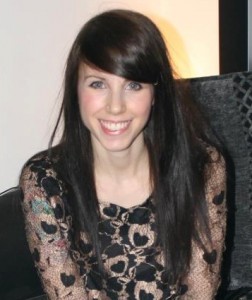It was January 2004 and, like many others, my New Year's resolution was to get fit. Being a university student, the only exercise I got was hitting the dance floor on a night out with friends. That, coupled with typical student stresses, and a poor diet of pasta, chips and sugary alcohol, led to me to develop irritable bowel syndrome and put a few probably needed pounds on my slight frame. My pledge to get fit and cut down on foods that were aggravating my IBS, alongside the stress of studying and friends around me obsessing about their weight, soon lead to a downward spiral.
In 2005, I was officially diagnosed with anorexia nervosa. The most common form of therapy for anorexia and binge eating disorders is cognitive behavioural therapy CBT . CBT was the treatment I received for my eating disorder in 2005. It targets the unhealthy eating behaviours of anorexia and bulimia and the unrealistic, negative thoughts that fuel them.
There came a point where my eating disorder began to have a knock on effect on my family, social life and work at university. I could no longer concentrate on my work, I felt isolated and developed obsessive behaviours. I began to weigh everything I ate - even cutting down slices of bread to make sure they fulfilled my strict calorie intake. When I didn't have scales available I would feel extremely stressed and resort to measuring my food such as a quiche with a ruler to make sure I didn't overeat.
I began to weigh everything I ate - even cutting down slices of bread to make sure they fulfilled my strict calorie intake
I would only eat from 'my' plate, which was smaller than everyone else's. I made excuses to avoid meals out. I began to weigh myself every day, becoming not only obsessed with the number on the scale but also with how I looked in the mirror, spotting every ounce of 'fat' on my body. My body image was severely distorted.
Seeing the effect my eating disorder was having on my family and on my health I decided to seek help - not because I wanted to, but because I felt I should.
Following an appointment I made with my doctor, I was referred to the NHS Eating Disorders unit for therapy. My first visit to the unit was hard. I didn't want to go but at the same time was fed up of the stress, and I was desperately unhappy. On my first visit I was weighed, subjected to a questionnaire about my thoughts and by the end of the session was diagnosed with anorexia nervosa. One-to-one sessions with my clinician were set up on a weekly basis for a number of weeks, depending on how I progressed.
The treatment revolved around trying to teach me to recognise negative thoughts and work to challenge and replace them with more rational, positive thoughts. I had to monitor my food intake with a food diary, annotating it with the thoughts and feelings I had when I ate the food. The reason for the food diary was to look for potential patterns and triggers. My clinician would explore these notes further with me, challenging them and trying to make me question them too.
Following nearly a year's worth of treatment I had seen my weight drop, but my thoughts and rationality improved. Focusing on food and my thoughts about it had made me even more obsessed with food and my problem, initially making my eating disorder worse. However, I had begun to understand and accept I had a problem and believe that my behaviour and thoughts weren't right.
I now had the tools to help myself. CBT can be difficult to implement with patients who refuse to participate or open up to the therapy process. You need to share a common goal with your clinician to overcome your disorder otherwise therapy will be unsuccessful. Whilst I wish I never knew what a calorie was and could erase all the destructive knowledge I'd learnt from my eating disorder days, I know that this isn't possible.
Ten years on, I have a great group of friends, supportive family and husband, hobbies, enjoy eating out, treating myself to dessert, and I'm even happy to skip the odd gym workout. Of course I have those days when I feel a little down but I don't think that anyone would challenge me when I say most people do. With a positive mental attitude, anyone can fight this illness.

